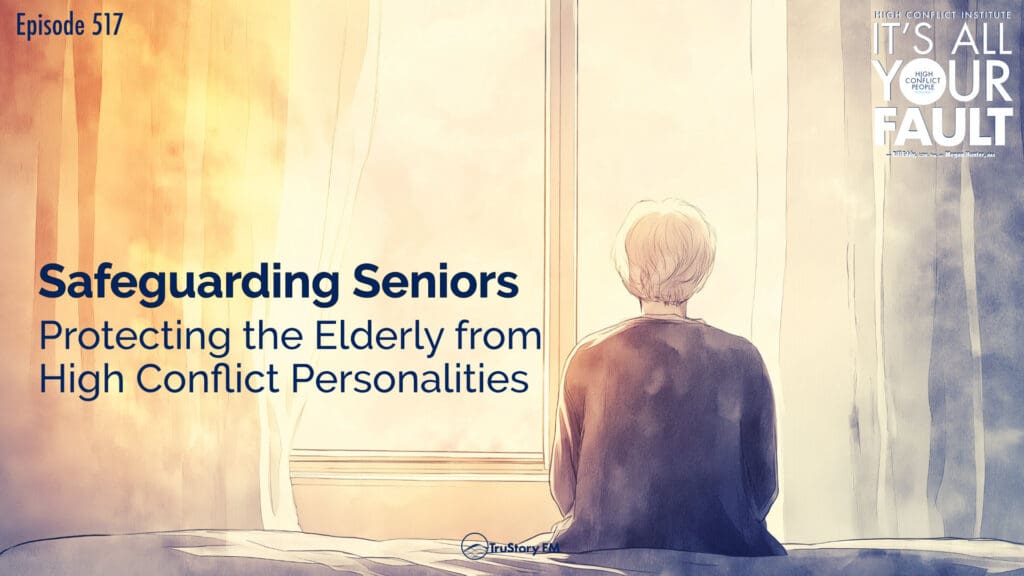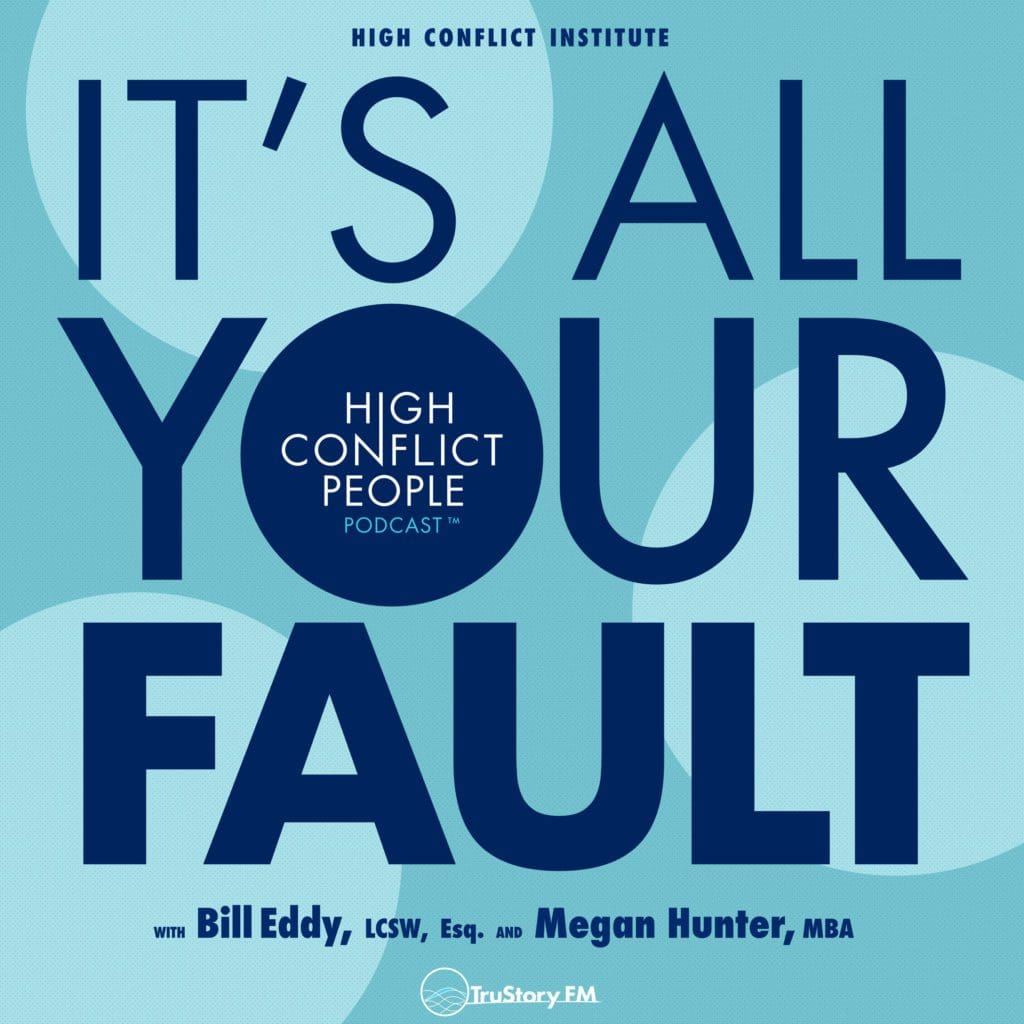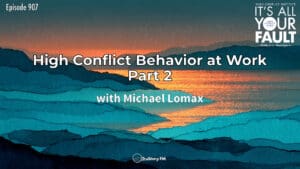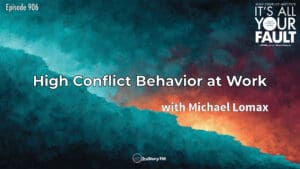Protecting the Elderly from High Conflict Personalities
In this episode, Bill and Megan explore the challenges faced by the elderly population in dealing with high conflict personalities. As the global population ages and birth rates decline, it’s crucial to understand how to identify and manage individuals who may pose a threat to the well-being of our elderly loved ones.
The hosts discuss how high conflict personalities, such as those with antisocial, narcissistic, or borderline traits, can take advantage of the elderly’s vulnerability through manipulation and control. They provide practical advice on recognizing red flags and supporting elderly individuals who may be experiencing abuse.
Questions we answer in this episode:
- What makes the elderly vulnerable to high conflict personalities?
- How can you identify potential abuse of an elderly loved one?
- What steps can you take to support and protect an elderly individual?
Key Takeaways:
- High conflict personalities often lack restraints, making the elderly more vulnerable to manipulation.
- Loneliness and isolation can make the elderly more susceptible to being taken advantage of.
- It’s essential to ask specific questions about potential abuse, as the elderly may be afraid to speak up.
- Family members and friends should stay involved in the lives of their elderly loved ones and be vigilant in recognizing signs of abuse.
This episode provides valuable insights and advice for anyone with elderly loved ones. By understanding the challenges faced by the elderly and learning to identify and manage high conflict personalities, listeners can play an active role in protecting the well-being of the older generation.
Links & Other Notes
- BOOKS
- CLASS
- ARTICLES
- OUR WEBSITE: https://www.highconflictinstitute.com/
- Submit a Question for Bill and Megan
- All of our books can be found in our online store or anywhere books are sold, including audio and e-books.
- You can also find these show notes at our site as well.
Note: We are not diagnosing anyone in our discussions, merely discussing general patterns of behavior. Nor are we providing legal of therapeutic advice. Please seek the assistance of your local professionals to seek help.











